We have written about Irish vegetable growers in this publication before and how it is so important to support local food production. Unfortunately, the number of vegetable growers in Ireland has declined dramatically this year.
There are now just 60 field vegetable growers in this country and a further 250 fresh produce growers.
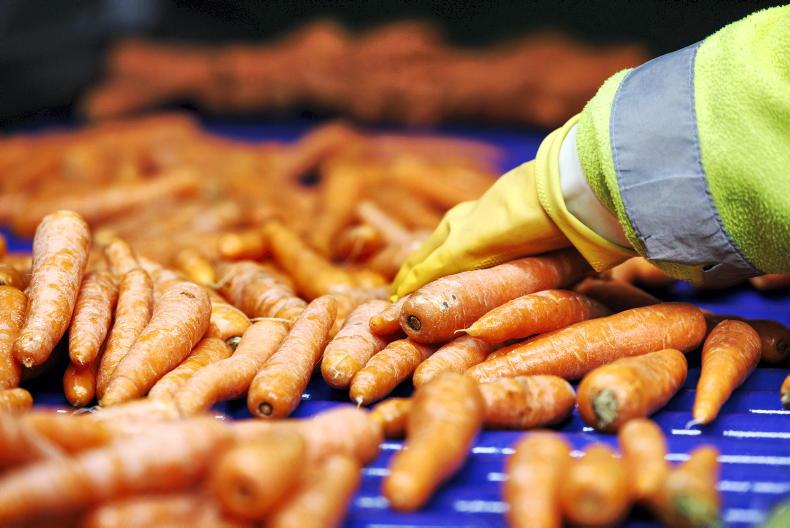
Carrots being graded and cleaned. / Donal O' leary
Farmers are leaving the sector as they have been faced with high input costs for seeds, fertiliser, pesticides, electricity and things like packaging and transport.
They are competing with imported products which are being produced in other countries often at a larger scale which helps to reduce those producers’ costs and increase their margin. By buying Irish we can support these growers.
Grocery shopping
So if you are helping with the grocery shopping in the next few weeks there are a few things that you can look out for as follows:
The country of origin of the produce. Look for Ireland.
The product might even have the growers name and address on it.
The Bord Bia Quality mark. This ensures a high standard of safe production.
Otherwise, you could go to your local market or sometimes even a grower’s farm shop and buy the produce directly from the farmer.
Eating in season
Consumers now have a much more varied diet than the Irish population did a number of years ago. They like to eat things like pineapples and pomegranates.
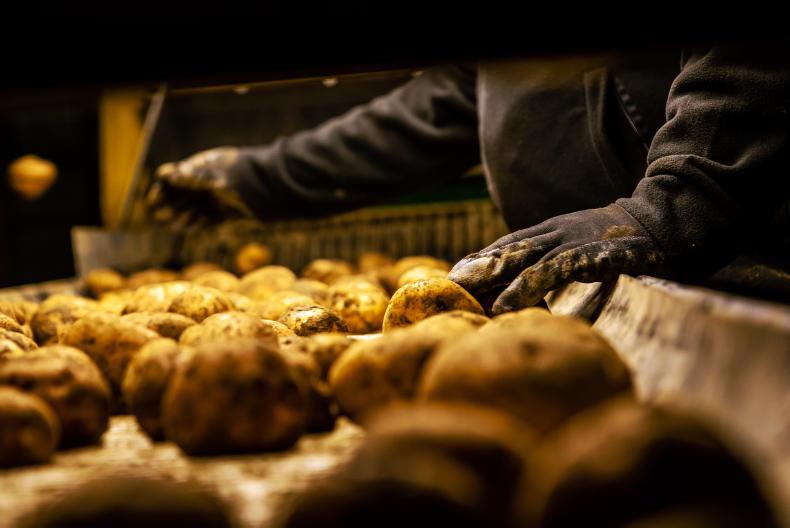
Potatoes being graded. \ Philip Doyle
They also like to eat things out of season, like raspberries and strawberries for example.
This all leads to more imports. By eating food that is in season we can make sure that we are supporting local producers all of the time.
What is in season in Ireland at present?
Kale
Spinach
Winter cabbage
Some cauliflower
Brussel sprouts
Leeks
Carrots
Parsnips
Potatoes (can be stored for many months)
Onions (can be stored for many months)
Garlic (can be stored for many months)
Beetroot
Mushrooms
Lettuce
Celery
Some salads grown
under glass
Apples (can be stored for many months)
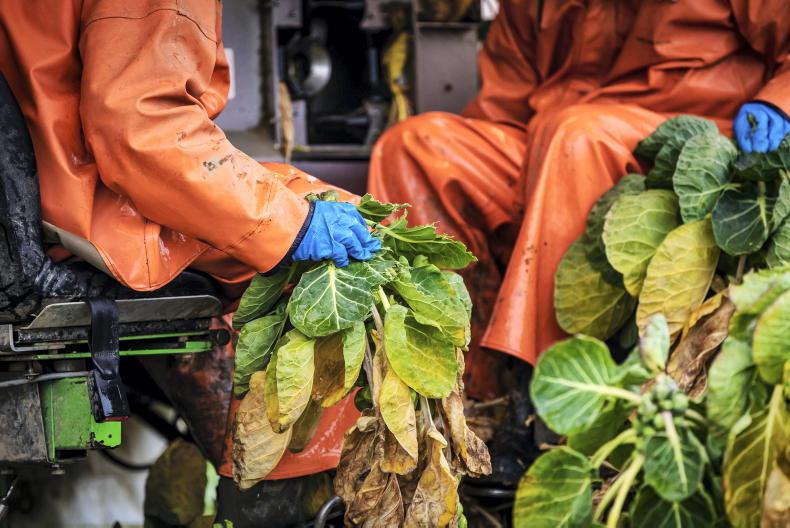
Brussel sprouts being harvested. / Claire Nash
So what other Irish produce can you put in your shopping basket right now?
Beef, lamb, pork, bacon, chicken, turkey, duck, milk, eggs and porridge.
These are all very easy products to find in the shops which have been produced on the island of Ireland.
Vegetable growing is tough work
It is really hard work to produce vegetables and potatoes in this country. In order for you to have Brussel sprouts and roast potatoes for your Christmas dinner farmers work long hours, often in wet and cold conditions. Brussel sprouts require a lot of people to harvest them and grade them and potatoes take a long time to dig in the wet weather, to wash and grade so that the consumer has just what they’re looking for.
These farms often employ many people. If we do not support these farmers by buying their produce then they will go out of business and will no longer be able to employ people.
Remember these businesses not only have people working hard to sow, weed and harvest crops, but many people transport the produce to where it needs to go as well.
We have written about Irish vegetable growers in this publication before and how it is so important to support local food production. Unfortunately, the number of vegetable growers in Ireland has declined dramatically this year.
There are now just 60 field vegetable growers in this country and a further 250 fresh produce growers.

Carrots being graded and cleaned. / Donal O' leary
Farmers are leaving the sector as they have been faced with high input costs for seeds, fertiliser, pesticides, electricity and things like packaging and transport.
They are competing with imported products which are being produced in other countries often at a larger scale which helps to reduce those producers’ costs and increase their margin. By buying Irish we can support these growers.
Grocery shopping
So if you are helping with the grocery shopping in the next few weeks there are a few things that you can look out for as follows:
The country of origin of the produce. Look for Ireland.
The product might even have the growers name and address on it.
The Bord Bia Quality mark. This ensures a high standard of safe production.
Otherwise, you could go to your local market or sometimes even a grower’s farm shop and buy the produce directly from the farmer.
Eating in season
Consumers now have a much more varied diet than the Irish population did a number of years ago. They like to eat things like pineapples and pomegranates.

Potatoes being graded. \ Philip Doyle
They also like to eat things out of season, like raspberries and strawberries for example.
This all leads to more imports. By eating food that is in season we can make sure that we are supporting local producers all of the time.
What is in season in Ireland at present?
Kale
Spinach
Winter cabbage
Some cauliflower
Brussel sprouts
Leeks
Carrots
Parsnips
Potatoes (can be stored for many months)
Onions (can be stored for many months)
Garlic (can be stored for many months)
Beetroot
Mushrooms
Lettuce
Celery
Some salads grown
under glass
Apples (can be stored for many months)

Brussel sprouts being harvested. / Claire Nash
So what other Irish produce can you put in your shopping basket right now?
Beef, lamb, pork, bacon, chicken, turkey, duck, milk, eggs and porridge.
These are all very easy products to find in the shops which have been produced on the island of Ireland.
Vegetable growing is tough work
It is really hard work to produce vegetables and potatoes in this country. In order for you to have Brussel sprouts and roast potatoes for your Christmas dinner farmers work long hours, often in wet and cold conditions. Brussel sprouts require a lot of people to harvest them and grade them and potatoes take a long time to dig in the wet weather, to wash and grade so that the consumer has just what they’re looking for.
These farms often employ many people. If we do not support these farmers by buying their produce then they will go out of business and will no longer be able to employ people.
Remember these businesses not only have people working hard to sow, weed and harvest crops, but many people transport the produce to where it needs to go as well.







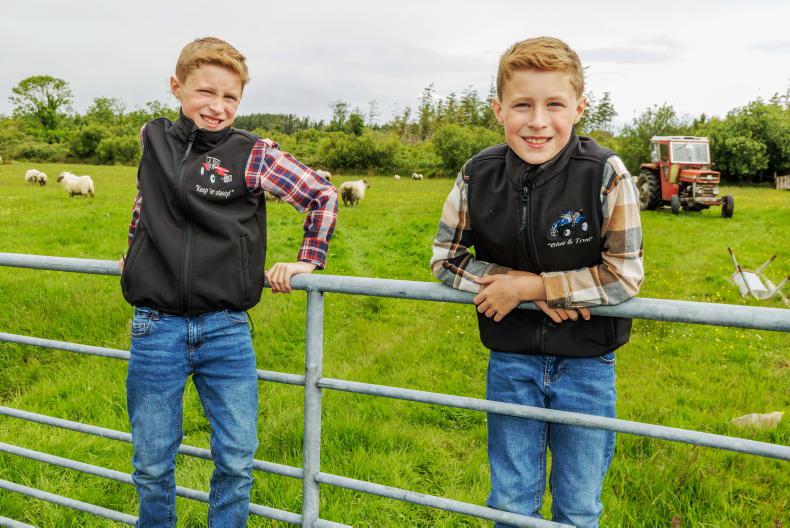
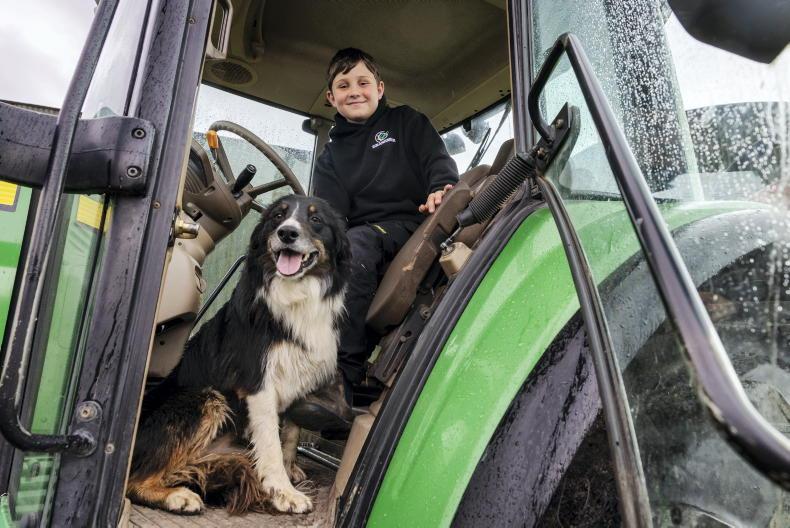

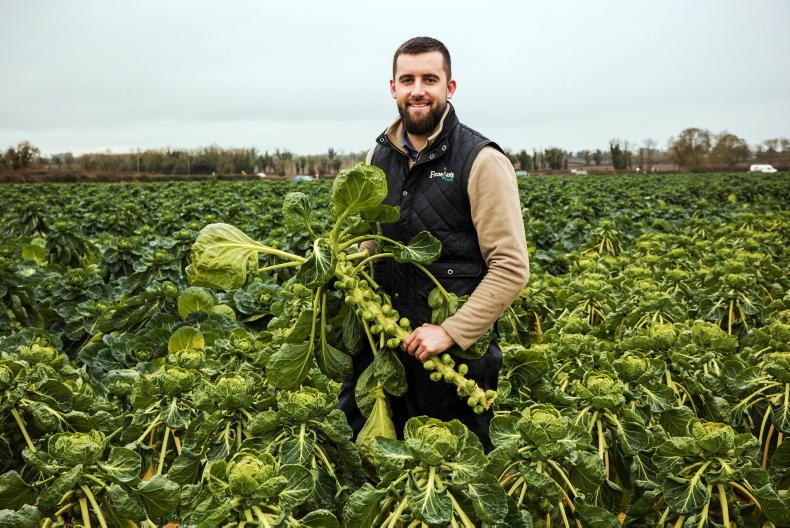
SHARING OPTIONS